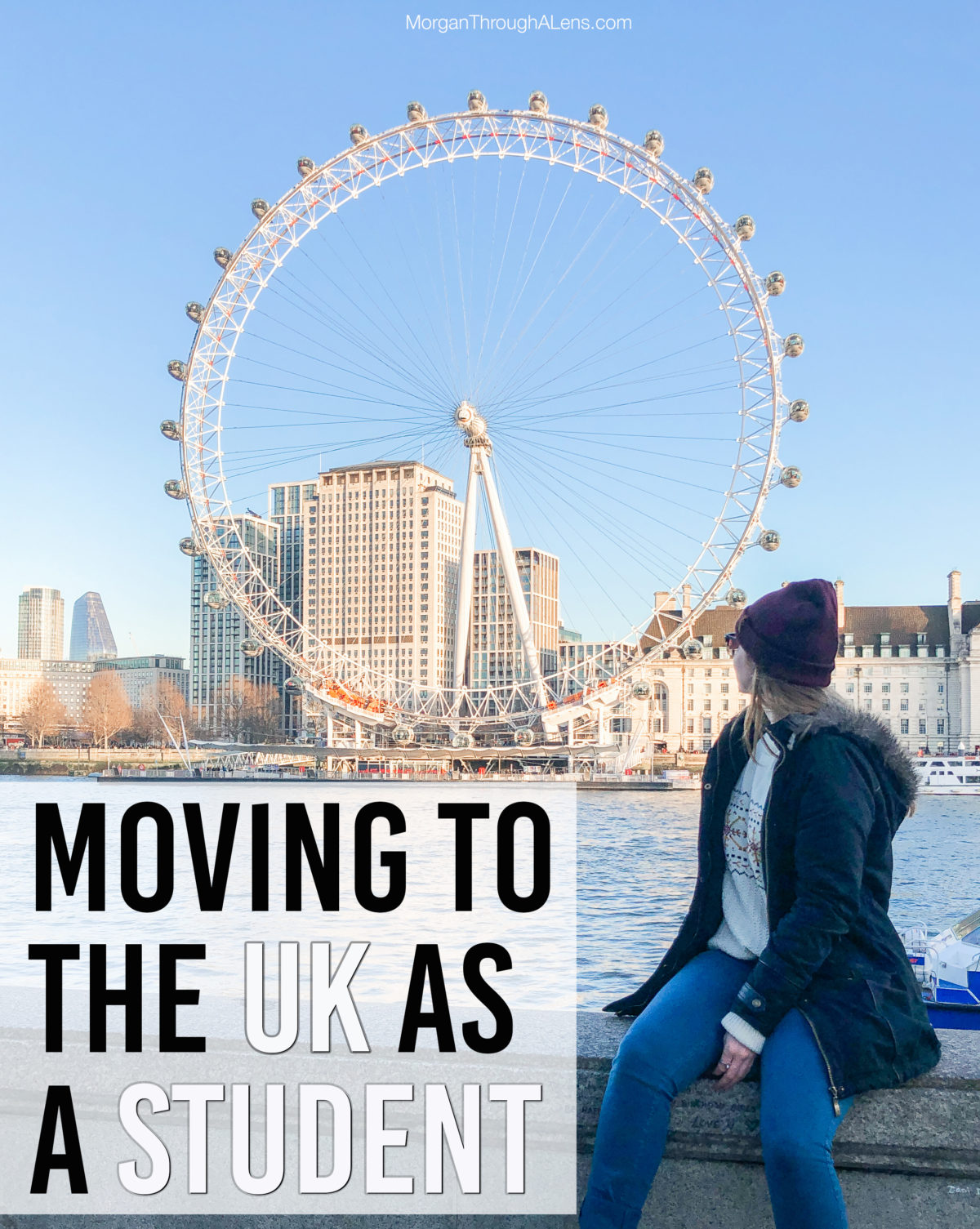Moving to a new country for school can be a bit daunting. Not only are you leaving home and settling into a new place with a different culture and possibly language, but going to school in a different country can also be a logistical nightmare. The school system is different, the application and requirements can differ, and oftentimes you need to get a visa just to move there. Well, I’ve gone through this process and made it out the other side, so I thought I would share some of the things I learned along the way.
P.S. This is pretty specific to UK master’s programs, but some of my tips may apply to other countries. I’ve also applied for many South African visas, so if you need tips on that just ask in the comments!
Get into a school
This may seem obvious but the process is a bit different here in the UK. Unlike American universities, most British schools accept applications on a rolling basis. That means schools start accepting applications in October(ish) and accept/deny people as they receive the application. Once all the spots are filled, you aren’t getting in – even if you are a great candidate.
Also, British schools don’t require the American entry exams (GRE, GMAT, etc.) but you can send in your scores if you did really well and think it will make your application stronger.
Obtain a student visa and collect your BRP
Before reading: take my advice with a grain of salt as I am not an immigration lawyer. Please do your own research and check out the government sites I linked below for up-to-date information.
Getting a visa is never fun. Never. Unless you are Meghan Markle (Yes, I am still bitter that we were both in Chicago at the same time to get visas and I was in the office for hours and she was in and out in 10 minutes).
Usually, the school helps you through the process, but as far as I can remember, you have to apply from your home country (which for me is the States – this was a pain as I was living in South Africa at the time) and you can only start the process 3 months before the start date of your program (which for me was the middle of June).
The visa you need in the UK is called a Tier 4 Student Visa. The process requires an online application, fingerprinting, and a whole bunch of money. Also, you only need a visa if you are studying in the UK for longer than 180 days, so most study abroad programs don’t require this.
Once you arrive in the UK, you have about a month to collect your BRP (Biometric Residence Permit) before the visa in your passport expires. The BRP looks like a driver’s license and once you collect it, the visa in your passport becomes useless. You must carry your BRP card with you when traveling because it is proof of your residency in the UK. I collected my BRP card from my school, but you can also collect them from the post office. Again, your school should help you with this.
Find a place to live
Finding a place to live in London while I was still in South Africa sounded like a total nightmare. That’s why I chose to live in student housing. It’s reliable, everything is included in the price (rent, electricity, wifi, heating, etc.), and it’s usually close to campus. It’s also a great way to meet other international students.
I’ve never rented in London but watching my friend go through the process makes me glad I don’t have to do that yet. Logistically, it’s also a lot harder than living in student housing. You usually have to go through an agent (therefore, agent fees), you have to pay first and last month’s rent, and you need a British bank account and credit score, which you may not have if you are international. (Also, to get a British bank account you need a local address, but to rent a flat you need a British bank account, so ya…)
I’m happy with my student housing. I live near Victoria Station, which is about 25 minutes from campus on the tube. My hall is dorm-esque. I have my own bedroom and bathroom but I share a (rather large) kitchen with six other people.
However, if you do want to rent, here are some helpful resources: MoveBubble, RightMove, and Tipi (to name a few).
Oyster card / transportation
As a student, you are eligible for a student oyster card. An oyster card is the card you use to access public transportation in London. As a student, you receive discounted prices, which is great because public transportation in London is crazy-expensive. I pay £94.10 a month for unlimited public transport (this includes the tub and buses). To apply you can click the link here.
Students also get a discount on the National Rail, which you can sign up for here. It’s called a 16-25 railcard, but if you are a full-time student 26 and older, you also qualify.
British phone number
This is easy but essential. You can do some research into price and plans, but schools usually hand out free sim cards at welcome events. I got a giffgaff sim card for free and now I pay £10/month for 6 gigs of data and unlimited calls and texts. Some other popular carriers are Vodafone, Virgin Mobile, O2, EE, and Three.
Register with a GP
The UK has this beautiful, amazing thing called the NHS. Seriously, it’s amazing (Brits may not all agree, but they’ve never had to deal with US healthcare). Basically, healthcare is free at the point of use in the UK. However, as a foreigner, you need to pay into the NHS as part of the visa process. I’m pretty sure it was about £450 on the Tier 4 Student Visa (that’s a once-off charge and it’s different for different visas). Also, you are only eligible for this if you are staying in the UK longer than 6 months.
Once you arrive in-country, you have to register with a local GP (general physician). There is usually one near the school or hall that your school will recommend. Once you register, you have an initial appointment where you meet with a nurse and go over your medical history, any issues you may be having, prescriptions, etc. And that’s it – you officially have healthcare. Beautiful.
Get a job
If you decide that you need some extra cash and have the time in your schedule to get a job… kudos to you. Tier 4 Student Visas allow you to work for 20 hours per week. That’s actually a lot of hours considering you are also studying. As long as you have a bank account so they can pay you and a National Insurance number, you are good to go.
National Insurance Number
To legally work in the UK, you need a National Insurance Number. Basically, having this number just means you are eligible to pay taxes or something (clearly I am an expert). The process is simple: call to make an appointment, go to said appointment with the documents they require, wait a few weeks for your NIN to arrive in the mail, and there ya go, you are legally allowed to work in the UK. It’s an easy but kind of long process, so get started as soon as possible. However, as long as you are in the process of getting a NIN, most places will still hire you.
Open a bank account
Having a British bank account is helpful to avoid international banking fees and to get a job. As I said earlier, you need a local address to get one and you also need proof of your student status. Your school can provide proof of student status and if you are living in student housing, they can provide you with a proof of address. Just call the bank of your choosing, make an appointment, bring your documents, and you’re in. But again, start the process early because it takes a few weeks to get an appointment.
Register items
Register your items with Immobilise to protect them if they are stolen. This may not help you get your stuff back, but if the police find a stolen phone, bicycle, T.V., etc. they use the Immobilise database to track it back to its owner.
Student Discounts
Ahh, the beauty of student discounts. London has an abundance. Here are a few resources you can use to find the best student discounts: UNiDAYS and TOTUM.
Tip: bring your student ID with you everywhere and always ask if they offer a student discount. You never know.
Do you have any other advice/tips for moving to the UK as a student? Let me know in the comments!

